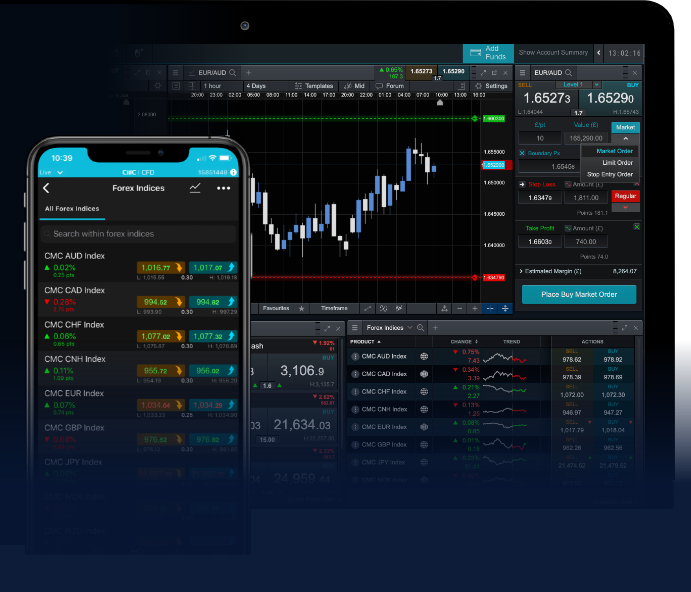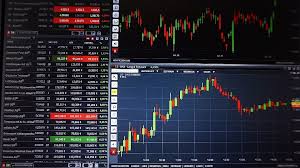
The Future of Forex Algorithmic Trading: Opportunities and Challenges
In the fast-paced world of forex trading, forex algorithmic trading Trading Asia stands out as a key player leveraging technological advancements. Forex algorithmic trading, the practice of using computer algorithms to buy and sell currency pairs, is transforming how traders approach the market. This article explores the opportunities and challenges presented by algorithmic trading in forex, touching on its past, present, and future.
Understanding Forex Algorithmic Trading
Forex algorithmic trading refers to the use of automated systems and algorithms to execute trading decisions. These systems analyze market data, identify trading opportunities, and execute trades at speeds that human traders cannot match. By employing complex mathematical models and strategies, algorithmic trading seeks to capitalize on market inefficiencies and trends.
Historical Context
The roots of algorithmic trading can be traced back to the late 20th century when technological advancements allowed traders to develop computer programs that could analyze data more effectively than human agents. Initially adopted by institutional investors, algorithmic trading has gradually become accessible to retail traders as technology has advanced and trading platforms have evolved.
Advantages of Algorithmic Trading in Forex
Speed and Efficiency
One of the most significant benefits of forex algorithmic trading is the speed at which trades can be executed. Algorithms can process vast amounts of data in milliseconds, enabling traders to take advantage of fleeting market opportunities. This efficiency allows traders to react to market movements faster than humanly possible, providing a competitive edge.

Emotion-Free Trading
Trading decisions are often influenced by emotions such as fear, greed, and anxiety. Algorithmic trading removes these psychological factors from the equation by adhering strictly to predefined rules and strategies. As a result, traders can avoid impulsive decisions that may lead to losses and instead focus on long-term profitability.
Backtesting and Optimization
Algorithmic trading systems can be backtested using historical data to evaluate their effectiveness. Traders can optimize their algorithms by adjusting parameters to improve performance based on past market conditions. This capability helps ensure that strategies are robust and can withstand various market environments.
Challenges Faced by Forex Algorithmic Traders
Market Volatility
While algorithmic trading can capitalize on market inefficiencies, it is not immune to market volatility. Sudden price swings can lead to significant losses if algorithms are not designed to handle extreme conditions. Traders must implement risk management practices to protect their capital against unforeseen market movements.
Technological Risks
Algorithmic trading relies heavily on technology, making it susceptible to various risks. System failures, software bugs, and connectivity issues can result in trading errors, leading to unexpected losses. Traders must thoroughly test their systems and ensure robust infrastructure to mitigate these risks.
Regulatory Challenges

The regulatory landscape surrounding forex trading is continually evolving. As algorithmic trading becomes more prevalent, regulators are implementing measures to ensure market integrity and protect investors. Traders must stay informed about regulatory changes and comply with relevant laws to avoid penalties and restrictions.
Future Trends in Forex Algorithmic Trading
Artificial Intelligence and Machine Learning
The integration of artificial intelligence (AI) and machine learning into algorithmic trading strategies promises to revolutionize the industry. These technologies can analyze vast amounts of unstructured data, identify patterns, and make predictions with increasing accuracy. As AI continues to evolve, it is likely to play a significant role in shaping the future of forex trading.
Increased Accessibility
As algorithmic trading platforms become more user-friendly and affordable, retail traders will gain more access to this trading technique. The emergence of cloud-based algorithms and API integrations allows traders with limited programming skills to develop and execute their strategies more easily.
Focus on Sustainability
With growing concerns about climate change and environmental sustainability, there is an increasing demand for investment strategies that prioritize ethical considerations. Algorithmic trading strategies could integrate environmental, social, and governance (ESG) criteria to align trading practices with sustainable development goals.
Conclusion
Forex algorithmic trading is poised to play an increasingly pivotal role in the financial markets, driven by technological advancements and changing trader demographics. While the advantages of speed, efficiency, and emotion-free trading are compelling, the challenges of market volatility, technological risks, and regulatory compliance must not be overlooked. The future of forex trading lies in the ability to adapt and innovate within this rapidly evolving landscape. For traders willing to embrace the opportunities and challenges, algorithmic trading can offer a pathway to enhanced profitability and success.